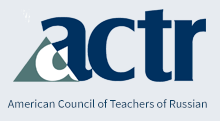Russian Language Journal
Keywords
Mayakovsky, AI, ChatGPT, teaching literature
Abstract
In this article, I seek to build on recent scholarship investigating the aesthetic status of AI-generated objects and the creative potential of machine learning by asking how AI glitches can be productive, both poetically and pedagogically. The report outlines an activity I designed for an undergraduate Soviet literature survey course. For this activity, I ask students to work in small groups and generate their own pseudo-Mayakovsky poem using ChatGPT. After sharing the poems, we discuss questions including the following: in what way can Mayakovsky be considered the “author” of these poems? Does this constitute a new literary genre or form? What does this glitch tell us about computer-generated or AI-generated literature in general? What can it tell us about Mayakovsky – a poet deeply informed by media technologies, and who at times imagined himself to be a robot or telephone wire? To what extent did his poetry anticipate its own AI reinvention?
Recommended Citation
Chenoweth, C. (2024). Glitching Mayakovsky: Teaching the Accidental Poetry of Machine Learning. Russian Language Journal, 74(1). https://doi.org/10.70163/0036-0252.1398


